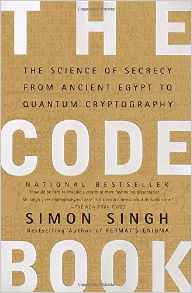He didn't even know this, but Matt Asay and I agree that the freedom(BSD) > freedom(GPL). Matt sums up nicely what I've been writing recently:
Forcing people to share's one's version of freedom is not...free.
</p>
This is exactly how I feel. And some people might say, "Well, that's fine. But how can we all co-exist with differing versions of freedom?" And to that I would say, by having the kind of legal system which enables a variety of contracts which convey those different freedoms and stipulations over our creations.</p>
Some bonus cherries with this approach is that people are dynamic. Their values and opinions are in a constant state of flux. Many (most?) people tailor their principles to match circumstances. Under the variety-of-contracts system, people can use different contracts at different times on different projects for different purposes. Like Asay thinks of the GPL, I think a CC-BY-NC-SA licensed product is like a bomb for a (would-be) competitor. </span>So someone can tactically employ CC-BY-NC-SA and CC-BY-ND simultaneously to create a dual-license business model. Imagine that - more variety among licensing principles and terms makes good business sense.







This lead to a paradoxical situation where two different ways of counting the amount of freedom gave different answers to the question, "Is this program free?" If you judged based on the freedom provided by the distribution terms of the MIT release, you would say that X was free software. But if you measured the freedom of the average user of X, you would have to say it was proprietary software. Most X users were running the proprietary versions that came with Unix systems, not the free version.
On a sidenote, I don't think it's right to demonize rms as some tyrant trying to force everyone to do what he wants. He repeatedly states that the "permissive" licenses (BSD, LGPL, public dom) are perfectly free and compatible with the GPL.
"If a program is free software when it leaves the hands of its author, this does not necessarily mean it will be free software for everyone who has a copy of it."
...
"Likewise, many free programs are copyrighted but distributed under simple permissive licenses which allow proprietary modified versions.
The paradigmatic example of this problem is the X Window System. Developed at MIT, and released as free software with a permissive license, it was soon adopted by various computer companies. They added X to their proprietary Unix systems, in binary form only, and covered by the same nondisclosure agreement. These copies of X were no more free software than Unix was."
$assumption = Array("X"=>"X", "cX"=>"copies of X", "Y"=>"modified version of X");
Now, it seems X is still available under the MIT (and other permissive) licenses. And if those license are perfectly free, then X can be said to be free, right?
So, what about cX? As evidenced by RMS, those were NOT free - they fell under the same proprietary nondisclosure agreements that the rest of the UNIX system did. But the exact same software is still freely available under the free license, so in this situation, the proprietary computer companies' actions made the software unfree for "most X users". It has nothing to do with the license, itself.
(Also, I hate to point out that "most users" sounds like something from Thurrot's arguments.)
Y is obviously not free; but here is where I would emphasize that I'm Fine With That. The reason is because, like in the cX situation, Y is a separate thing. So I say it's fine for it to be distributed under separate terms. Again, X is still available under the perfectly free license, so the license itself has not caused Y to be un-free. The modifiers/creators of Y have.
So basically what I've been saying is that permissive licenses put freedom (like truth and beauty) into the hands/mind/eye of the beholder. Non-permissive licenses require agreement with a certain definition of freedom.